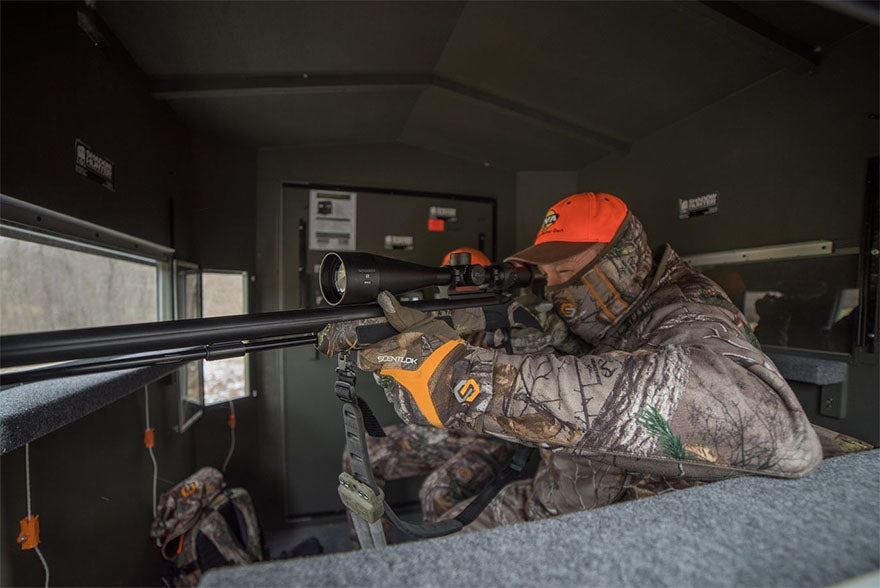Your Cart is Empty
FREE SHIPPING ON ORDERS OVER $100 -Excludes Shadow Hunter Blinds, USA Made Steel Tower System
FREE SHIPPING ON ORDERS OVER $100 -Excludes Shadow Hunter Blinds, USA Made Steel Tower System
FREE SHIPPING ON ORDERS OVER $100 -Excludes Shadow Hunter Blinds, USA Made Steel Tower System
FREE SHIPPING ON ORDERS OVER $100 -Excludes Shadow Hunter Blinds, USA Made Steel Tower System
October 28, 2021 3 min read

According to the U.S. Fish and Wildlife Service, there areover 15 million hunting license holders in the United States. By far, most of these hunters are deer hunters (11.4 million, including bowhunters), although many others prefer elk, bear, waterfowl or varmint. Despite these numbers, you may be surprised to find that the vast majority are amateurs and hobbyists. A typical hunter is a regular gun-owning American citizen, for whom hunting is a recreational activity and a great way to fill the freezer with nutritious game meat. A professional hunter is a highly skilled individual with hunting as their primary source of income. In the United States, they may also be called commercial hunters or market hunters. If you’re interested in hunting for a living, you need to understand that a pro hunter is more than just a good shooter, and there are many opportunities and ways to live off your favorite hobby.
Shadow Hunter Marksman 6x6: Pro Hunter Tested And ApprovedFundamentally, a professional hunter isn’t that different from a typical amateur hunter. Both love and respect the outdoors and enjoy hunting; a professional earns a living from their hobby. Even if their favorite activity is hunting, their primary source of income may not necessarily come from hunting; they may make revenue selling the meat and pelts.
Many professional hunters also earn income from activities related to hunting. This could include working as a hunting guide, taking predator hunting contracts from the FWS, collecting ad revenue from a hunting blog or running a hunting supplies shop that sells guns, clothes,deer blinds and blind accessories. While these activities demand extensive hunting knowledge and experience, they also imply a broader array of skills. For example, a hunting guide needs to be a responsible leader, displaying patience and communication skills.

Before considering a career as a professional hunter, it is vital to assess your skills and capabilities. Educate yourself on all firearm and hunting laws in the United States, including regulations outside your home region and rarer forms of hunting, such as lawsregarding deer hunting with dogs. In addition, monitor hunting news to stay informed of any legal or regulatory changes. You’ll need to practice your shooting skills and improve your marksmanship as often as possible. Consider trying competitive shooting; not only are competitions a lot of fun, but they also help you hone your skills in the hunting off-season.
Assess your communication skills, both oral and written. Depending on the job, outdoor industry professionals may need to interact with customers or the public. For example, speaking clearly, concisely and without judgment is an essential attribute for hunting guides because they can then give clear instructions and effectively teach hunting techniques to novices. Most importantly, have your hunting skills evaluated by a professional in the field. A local game warden can be a great mentor or consider joining a hunting club in your area to gain access to a network of like-minded individuals with whom you can share information and source advice.
Shadow Hunter Marksman 6x6 Octagon Archery: The Perfect Blind for BowhuntersProfessional hunters can engage in various jobs and activities to earn a living from their favorite hobby.

Shadow Hunter Blinds manufactures premium-grade, professional-quality hunting blinds suitable for gun and bowhunters. Our entire product range is 100% manufactured with pride in the United States.
Whether you are a hobbyist looking to fill the freezer or a professional living off the land, Shadow Hunter Blinds products keep you comfortable and concealed when you are out in the field.